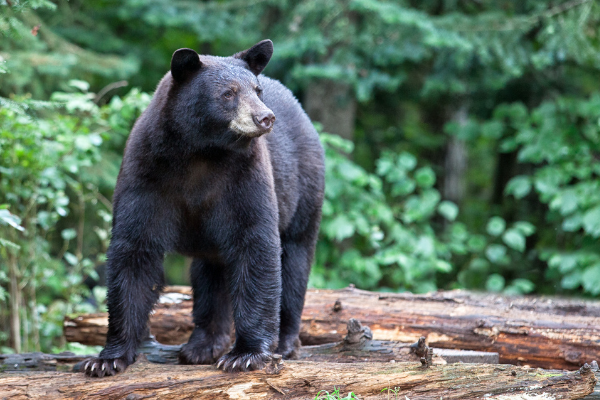A hearty cheer to New Jersey Governor Phil Murphy for keeping his years-old campaign promise to stop the annual slaughter of black bears in his state, saving the lives of hundreds of adult bears and their cubs. The New Jersey Division of Fish and Wildlife posted a notice online on July 21 that the 2021 black bear season is closed, as the state’s Comprehensive Black Bear Management Policy has expired, reports Michael Sol Warren of nj.com. According to a 2007 ruling by the state Supreme Court, no black bear hunt can be held in the state without such a policy in place. Murphy announced last fall that the 2020 bear hunt would be the last time the polarizing season was open under his watch. Murphy had previously restricted the scope of the hunt by closing it on public lands with an executive order in 2018.
The key to Murphy’s legislative maneuvering is that the state’s yearly black bear policy must be drawn up by the New Jersey Fish and Game Council, which then must be approved by the commissioner of the New Jersey Department of Environmental Protection. NJ DEP Commissioner Shawn LaTourette declined to sign off on the needed document. LaTourette served as the DEP Deputy Commissioner before being elevated to the top post by Murphy earlier this year.
After being closed since the 1970s, the state’s black bear hunt resumed amid much controversy in 2003. There were 410 bears killed during the 2020 hunt, up from 315 in 2019.
“Finally, the bloody atrocity is dead, and not the innocent black bears,” said Priscilla Feral, president of Friends of Animals. “Since humans are constantly encroaching on wildlife habitat, it is up to us to change our behaviors to be good neighbors to the bears and other wildlife we share our land with.”
Friends of Animals has long been active in calling on state and local agencies to step up their education programs about what to do when you encounter a black bear, or to avoid attracting them in the first place, such as by properly securing trash, pet food and bird seed in homes. (Pro tip: Screen doors don’t deter bears, and open garages are open invitations for bears to go through your recyclables or refrigerator. Also, garbage cans for curbside pickup should be put outside the morning of collection and not the night before.)
FoA also urges states – particularly in the Northeast – to promote greater use of bear-resistant containers in areas located in black bear habitat. This commonsense practice is now used in states with much greater bear populations, such as Alaska and California. In those states, removing easy access to human foods through the use of bear-resistant garbage cans has proven to reduce human interaction with bears.
“There’s no need to have a shoot-first mentality aimed at bears when there are proven ways to allow them to live their lives naturally, especially in the fall, when bears increase their food intake to add fat reserves needed to help them survive the winter,” Feral adds.
The presence of bears is vital to the health of the complex habitat in which they live as omnivores, predators, and scavengers. Bears play a critical role in maintaining healthy, balanced populations of deer, insects, and other animals and are important seed dispersers. For more tips on living peacefully with black bears, check out FoA’s How to Bear it in Black Bear Season brochure.

